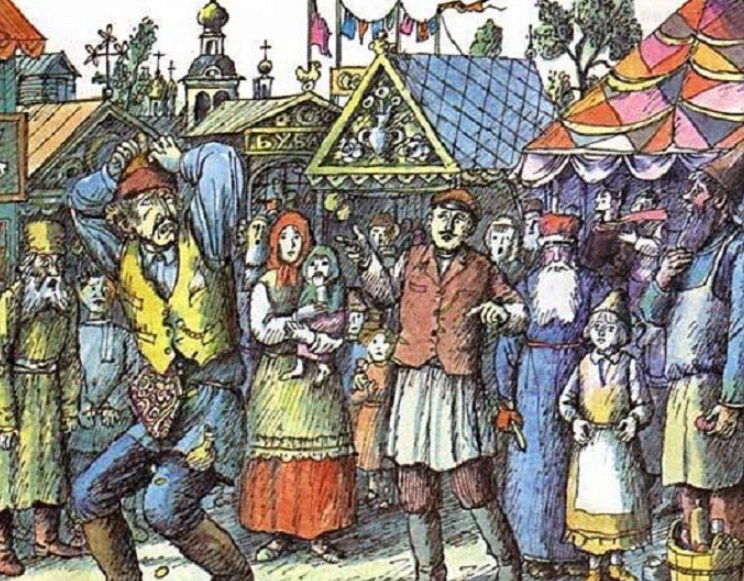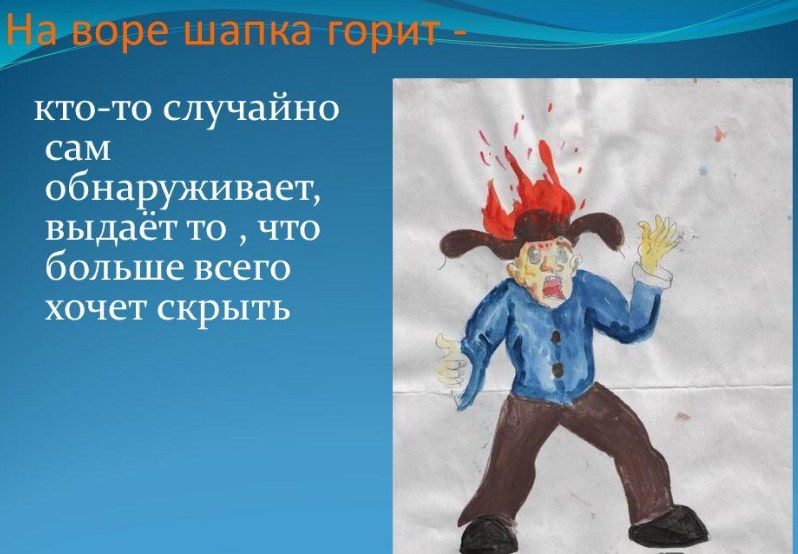How impoverished our language would be if well -aimed and substantial sayings, proverbs and aphorisms suddenly disappeared from it. Most of them came to us from Ancient Russia, and we still use the wisdom of our ancestors.
Among the proverbs there are such folk “pearls” that arose relatively recently, but they rightfully took their place among their senior “brothers”.
"On a thief and hat are on": origin
- With this expression - “on a thief and a hat burns” quite often. It may seem that the information has long been lost about his historical origin, and it turned into one of the many myths. But under this proverb, a real story is hidden, which happened relatively recently-since then it has passed only a few centuries.
- Imagine a big city, a market in which a thief got started. Since the theft continued, despite all the attempts of merchants and buyers to catch an attacker, it occurred to some of them to turn to a wise monk for advice.
- The Orthodox clergyman did not refuse to help people and informed them that the capture of the thief would take place during a fair day. Since the fair used to be a real crowded holiday, both city residents and villagers from nearby villages came to it. Here in this crowd, full of merchants, buyers and idle guels, this sacramental phrase was loudly uttered by the monk: “Look, people, a hat is on a thief!” There were types in the crowd that involuntarily grabbed their hats with their hands-they turned out to be these very unlucky thieves.

- The clergyman asked why he appointed a fair day to capture criminals. He said that only with a large accumulation of the people could be driven into the mousetrap of all thieves at once. That's what the sage turned out to be this monk!
- Yes, it was a truly spectacular revelation, which eventually turned into a stable speech circulation and became truly a popular proverb. The meaning of the expression "on a thief and hat burns" speaks for itself: any thief will someday give out itself.

- This is also confirmed by psychologists - the criminal expects that he can be grabbed by the hand during the theft, and therefore experiences constant nervous tension. Such a person is well aware that he is a thief, and he is not able to abstract from these thoughts. Therefore, "grabs the hat that burns," i.e. It turns out at the epicenter of funny and stupid situations.
- However, so to speak, you can rather about small thieves with the remnants of conscience. The same corrupt officials who erected theft to a large scale, unfortunately, will not come across the notorious “hat”.
What does the expression mean - "on the thief and the hat burns"?
- What does the expression mean - "on the thief and the hat burns"? Over time, this expression has another semantic meaning.
- Not only thieves, but also those people who endure moral and ethical social laws, somehow: they stipulate someone withoutly, they substitute, put another person with their dishonest actions in an uncomfortable position will certainly give themselves out.
- One has only to create certain circumstances for them - and all their dark things will certainly be revealed.
Other proverbs on the site and their meaning:
- "Time, fun hour"
- "On someone else's misfortune happiness can not be built"
- "Both the wolves are full and the sheep are intact"







